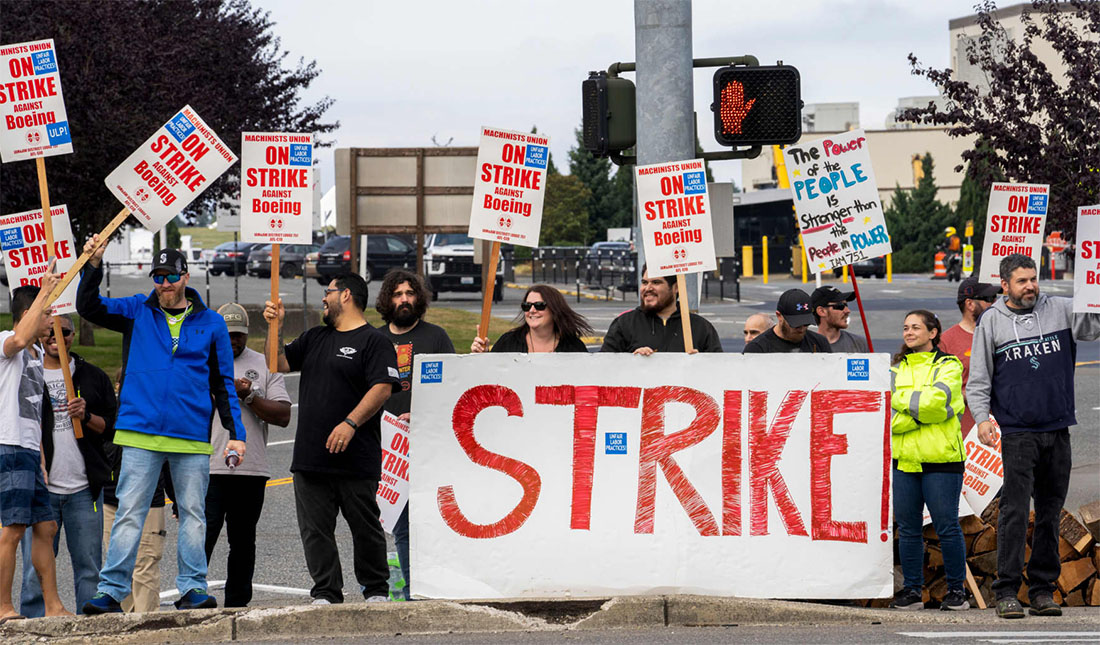
Photo Credit: Getty Images
Boeing has withdrawn its contract offer to approximately 33,000 striking factory workers after negotiations reached an impasse. The strike, now entering its fourth week, shows no signs of resolution as both sides remain firmly entrenched in their positions.
Boeing Commercial Airplanes chief Stephanie Pope stated bluntly, "Unfortunately, the union did not seriously consider our proposals," adding that "further negotiations do not make sense at this point." The company had previously offered a 30% pay increase over four years, up from an initial 25% proposal that workers overwhelmingly rejected when they began their strike on September 13.
The International Association of Machinists and Aerospace Workers (IAM) is pushing for a 40% wage increase over four years and the reinstatement of a defined-benefit pension that was eliminated a decade ago. The union countered Boeing's claims, asserting that the company was "hell-bent on standing on the non-negotiated offer" from last month.
The financial implications for Boeing are severe. S&P Global Ratings estimates the strike is costing the company more than $1 billion monthly and has warned of a potential downgrade of Boeing's debt to junk status. The planemaker is already grappling with a $60 billion debt load and has seen its stock plummet by over 40% this year.
"The strike puts Boeing's recovery at risk," S&P stated in a recent report. The rating agency also noted that Boeing's goal to increase production of its 737 MAX aircraft to 38 units monthly will likely be delayed until mid-2025.
The breakdown in negotiations compounds Boeing's existing challenges, including production problems and a tarnished safety reputation following a January mid-air panel blowout incident. The company has implemented temporary furloughs for thousands of salaried employees, while factories producing its bestselling 737 MAX, 767, and 777 planes remain shuttered.
Sources familiar with the matter indicate Boeing is exploring options to raise billions of dollars to strengthen its balance sheet, including the potential sale of stock and equity-like securities.
With no new negotiations scheduled, the industry watches closely as one of the world's primary commercial aircraft manufacturers navigates through perhaps its most challenging labor dispute in recent history.
















